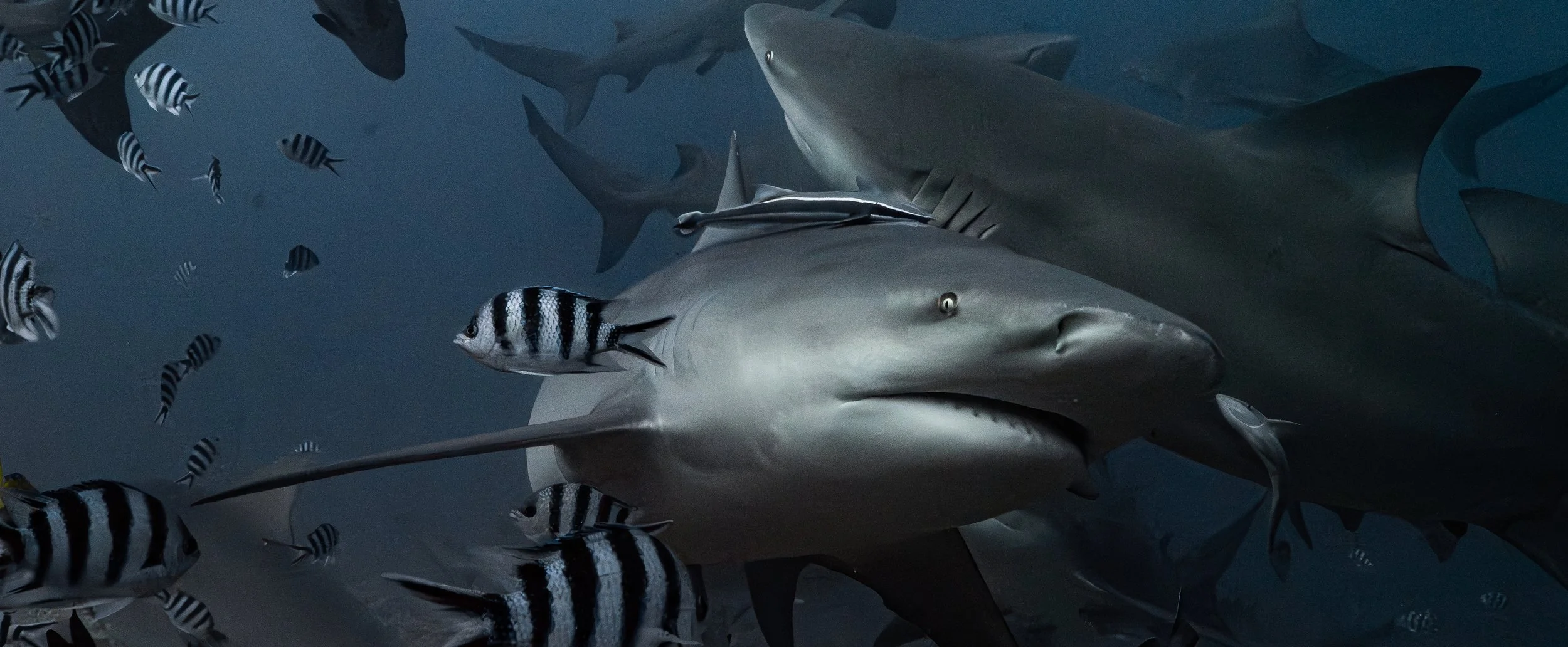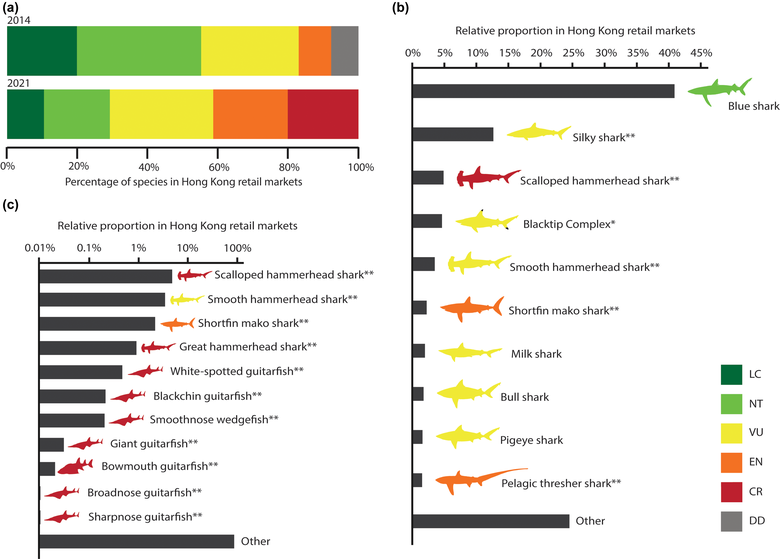
PUBLICATIONS & RESEARCH LIBRARY
Publications & Research Library
At NeuralFin, we believe education is the foundation of effective conservation. Knowledge empowers people to make informed decisions that drive positive change for our oceans. This library of peer-reviewed publications, reports and learning resources is carefully curated to help you explore sharks, their vital roles in marine ecosystems, and the global conservation efforts working to protect them.
Whether you’re a student, researcher, diver or ocean enthusiast, we encourage you to explore these resources to deepen your understanding of the ocean we are working to protect. By learning more about shark biology, behaviours and the challenges they face, you become an essential part of their future. Together, through education and awareness, we can inspire meaningful action to conserve these animals and ensure healthier oceans for generations to come.
Education for the next generation is central to our mission. NeuralFin develops youth-friendly learning resources that turn curiosity into action—classroom activities, short videos and citizen-science programs where students help classify images, explore shark behaviour and learn data ethics. By giving young people credible, hands-on science experiences, we’re building ocean literacy and empowering the next generation of guardians for our seas.
-

Identification of the first gestational ground for tiger sharks (Galeocerdo cuvier) in the Central Indian Ocean using a high-definition submersible ultrasound
The reproductive state of tiger sharks (Galeocerdo cuvier) was assessed using underwater ultrasonography at a dive site in Fuvahmulah, a Maldivian atoll located in the central Indian Ocean. This site hosts a renowned aggregation of tiger sharks, providing a unique opportunity to observe and assess reproductive activity in situ. Using non-invasive ultrasound technology, embryos were detected in 93% (26 out of 28) of the adult females scanned, with two distinct embryonic size classes identified among the individuals. These findings suggest that the Fuvahmulah dive site functions as a gestation ground for tiger sharks.
-

Marine Conservation: Reef Sharks Need Bigger Protected Areas David S. Shiffman, 2020
This dispatch highlights research showing that most marine protected areas (MPAs) around coral reefs are too small to effectively protect reef-associated sharks. It emphasizes that expanding the size and enforcement of MPAs is critical to ensuring the long-term survival of reef shark populations and maintaining healthy marine ecosystems.
-

First Evidence of Individual Sharks Involved in Multiple Predatory Bites on People Eric E. G. Clua et al., 2024
This study presents the first photographic and genetic evidence that certain individual sharks, such as tiger sharks (Galeocerdo cuvier) and oceanic whitetip sharks (Carcharhinus longimanus), may be responsible for multiple predatory bites on humans. These “problem individuals” displayed atypical behaviour, engaged in repeated aggression towards humans, and bit or attempted to bite people in probable foraging attempts. The findings highlight the potential for individual-level patterns in shark attacks, similar to problem predators on land.
-

Assessing White Shark (Carcharodon carcharias) Behavior Along Coastal Beaches for Conservation-Focused Shark Mitigation Andrew P. Colefax, Brendan P. Kelaher, Daniel E. Pagendam, Paul A. Butcher, 2020
This study used drone technology to track 108 white sharks along Australia's east coast, revealing they typically swim parallel to beaches at speeds around 0.82 m/s (~3 km/h) in energy-conserving motion and foraging behaviour. Presence of fish schools increased their swim speeds, and sharks swam straighter and faster during midday. Understanding these behavioural patterns can inform non-lethal, conservation-focused shark hazard mitigation strategies, reducing reliance on culling and promoting coexistence.
-

Sharks and how to save them: 2022 Colin A. Simpfendorfer
This book review outlines the global extinction crisis facing sharks and rays, highlighting that over 95% of assessed shark species are threatened with extinction, with some possibly already extinct. The article emphasises the urgent need for conservation action to halt these declines and rebuild shark populations to maintain ocean ecosystem health.
-

The role and value of science in shark conservation advocacy: August 2021 David S. Shiffman, Catherine G. Macdonald, S. Scott Wallace, Nicholas K. Dulvy
This article highlights the debate surrounding shark conservation methods and the importance of science-based decision-making. It addresses whether sustainable fisheries or a complete ban on shark fisheries provides a more effective conservation strategy, taking into account socio-economic contexts, especially within developing regions.
-

The Shark Watching Industry and its Potential Contribution to Shark Conservation 2004 Karen N. Topelko, Philip Dearden
This publication examines whether shark watching can meaningfully support shark conservation by shifting economic interests from consumptive (fishing) practices toward non-consumptive, sustainable tourism. It discusses how growth in shark-watching tourism contributes significantly to local and regional economies, potentially leading to greater protection of shark populations.
-

The importance of research and public opinion to conservation management of sharks and rays: a synthesis June 2011 C. A. Simpfendorfer, M. R. Heupel, W. T. White, N. K. Dulvy
This paper examines the growing need for research to support shark and ray conservation by synthesising findings from the 2010 Sharks International Conference. It highlights research priorities including taxonomy, life history, spatial ecology, and human impacts, and emphasizes integrating social and economic research to ensure effective and sustainable conservation management.
-

Killing sharks: The media’s role in public and political response to fatal human–shark interactions December 2015 Christine McCagh, Joanne Sneddon, Dominique Blache
This study analyses how media coverage influences public perceptions and government decisions following fatal human–shark incidents. It examines the Western Australian government’s lethal shark management policies, highlighting how the media’s framing of shark attacks can shape policy responses, public fear, and conservation outcomes.
-

Coexisting with Sharks: A Response to Carter and Linnell November 2016 Austin J. Gallagher
In this response letter, Gallagher critiques a recent framework on human–carnivore conflict for overlooking marine predators like sharks. He argues that while the discussion on coexistence with terrestrial carnivores is broad and valuable, it neglects the importance of marine apex predators, highlighting the need to include sharks in global conservation and policy dialogues addressing human–wildlife conflict.


